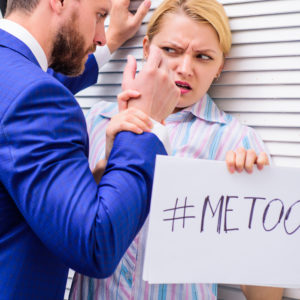Editor’s Note: For another viewpoint, see Counterpoint: Discrimination May Not Be the Biggest Problem.
Most people have heard of the gender wage gap — the difference in median annual pay earned by women compared to what’s earned by men. According to the most recent census, women are paid 82 cents for every dollar paid to men. But there are other facts about how women are held back in the workplace that are just as shocking.
According to the National Partnership for Women and Families, women who hold full-time jobs in the United States lose a combined total of more than $915 billion every year because of this wage gap. This equates to a nurse in Chicago losing more than 13 months of childcare, or seven monthly premiums for employer-based health insurance. A teacher in Florida can’t make seven mortgage and utility payments.
This isn’t a wage gap. It’s wage theft. And it’s not only stealing money from women, it’s stealing their future.
Less than one-third of women believe they are paid fairly. A 2013 Thomson Reuters poll found that just 28 percent of U.S. working women say they are confident they are paid the same salaries as their male counterparts, while 43 percent say they do not believe they are paid the same.
Numbers don’t lie — and that’s why Donald Trump wants to erase them. One of the first regulations Trump targeted was an Obama-era requirement that companies report pay data by gender, race and job title to the Equal Employment Opportunity Commission, the agency that enforces civil rights laws.
Trump and his OMB director, Mick Mulvaney, tried to shut down the rule, but a lawsuit filed by the National Women’s Law Center, the Labor Council for Latin American Advancement, and Democracy Forward successfully challenged the stay in court. This past April, a federal judge ordered the administration to continue the program.
It’s hard to ignore solid data and irrefutable facts.
The U.S. Women’s Soccer Team, for example, wouldn’t have found out about Men’s Soccer Team’s salaries without the team’s publicly available union contract. And the entertainment industry is spotlighting equal pay, with actress Michelle Williams’ recent Emmy speech serving as just one example.
It’s also worth remembering that Lilly Ledbetter herself was alerted to the gender pay gap at Goodyear Tire when she received an anonymous note in 1998 giving her details about the discrepancy.
Still, we shouldn’t have to rely on leaked documents or anonymous notes to obtain information that should be publicly available. Federal labor law gives workers the right to collectively organize and discuss workplace issues, but these rights are regularly trampled or ignored.
There are a number of steps Congress can take to end the pay disparities that hold women back. The Paycheck Fairness Act passed the House with the support of every Democrat and seven House Republicans. The bill prohibits discrimination on the basis of sex, stops employers from relying on salary history to set pay when hiring, and requires employers to report pay to the EEOC.
The Healthy Families Act would allow workers to earn job-protected paid or unpaid sick days and the Family and Medical Insurance Leave (FAMILY) Act would establish a national paid family and medical leave insurance program for women and men.
Also, increasing the federal minimum wage to $15 an hour will have a profound effect on women, who comprise two-thirds of minimum-wage earners.
Last month, Justice Ruth Bader Ginsburg spoke at the University of Chicago about gender discrimination.
When she was practicing law in the 1970s, Ginsburg said “the law books of the country and the states were just riddled with gender-based classifications” that judges thought “operated benignly in women’s favor.”
“In contrast to racial discrimination, which everybody recognized was odious, most of the judges thought that women were favored by the law — that they were treated differently as a preference,” she said. She observed that women used to be recused from jury duty so as not to keep them from responsibilities at home, and Social Security benefits would be paid only if men die, not women.
A law should be changed, Ginsburg said, when it “is just plain wrong, as it was in gender classifications — holding people back, creating artificial barriers to the ability of a person to realize her own potential.”
As usual, Ginsburg is right, and workplace discrimination is just as wrong today as it was in the 1950s, ’60s or ’70s. Women should be treated fairly, paid the same as men for comparable work, and given the same opportunities for advancement.
Nothing less will do.

